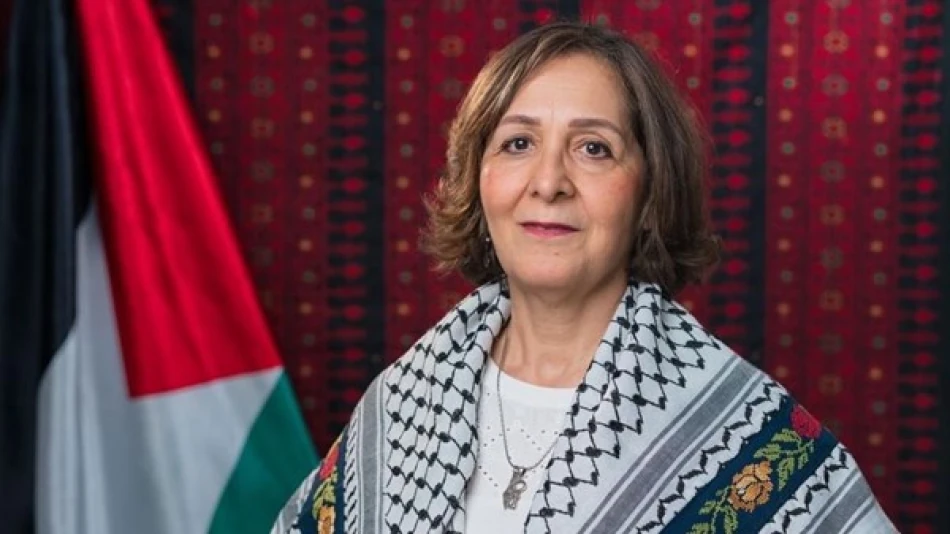
Emirati Support Empowers Palestinian Women's Resilience Amid Challenges
UAE's Strategic Humanitarian Diplomacy Strengthens Regional Influence Through Gaza Crisis Response
The United Arab Emirates has emerged as a pivotal humanitarian actor in the Gaza crisis, with Palestinian women's organizations recognizing the Gulf nation's comprehensive support system that extends far beyond emergency aid to encompass long-term community resilience programs. This sustained engagement reflects a broader strategic shift in Middle Eastern diplomacy, where humanitarian leadership increasingly translates into regional influence and soft power projection.
Multi-Layered Support Framework Targets Women and Families
Amal Al-Agha, President of the Palestinian Women's Union in Cairo, highlighted the UAE's systematic approach to Palestinian support, particularly focusing on women who serve as primary caregivers and often sole breadwinners in conflict zones. The Emirates' strategy encompasses direct financial assistance, educational scholarships for female students, and institutional support for civil society organizations dedicated to women's empowerment.
This targeted approach addresses a critical gap in crisis response. Research consistently shows that women bear disproportionate burdens during conflicts, managing household survival while facing restricted mobility and economic opportunities. The UAE's recognition of this dynamic positions it as a sophisticated humanitarian actor that understands the interconnected nature of gender, economics, and conflict resilience.
Operational Initiatives Demonstrate Institutional Capacity
Medical and Health Infrastructure
The UAE's "Noble Knight 3" and "Birds of Goodness" initiatives represent comprehensive humanitarian operations that extend beyond traditional aid delivery. These programs have established field hospitals and implemented vaccination campaigns for children, creating sustainable health infrastructure rather than temporary relief measures.
This approach mirrors successful humanitarian models deployed by the UAE in Yemen, Syria, and Afghanistan, where the nation has built reputation as a reliable partner capable of managing complex logistics in challenging environments.
Water Security Partnership with Egypt
The collaboration with Egypt to secure drinking water through the Arish water station demonstrates the UAE's ability to leverage regional partnerships for maximum impact. This infrastructure-focused approach addresses root causes rather than symptoms, as Israeli targeting of Gaza's water sources has created long-term dependency on external supplies.
The Egypt partnership also serves UAE strategic interests by strengthening bilateral ties with Cairo while positioning the Emirates as a bridge-builder in regional crisis management.
Regional Implications for Middle Eastern Diplomacy
The UAE's humanitarian leadership in Gaza occurs within a complex regional landscape where traditional power dynamics are shifting. Unlike Saudi Arabia's more cautious approach or Qatar's politically-charged aid delivery, the UAE has crafted a model that maximizes humanitarian impact while maintaining operational flexibility.
This strategy allows the Emirates to engage with Palestinian civil society without directly confronting Israeli security concerns, while simultaneously building goodwill across the Arab world. The approach reflects lessons learned from the Abraham Accords, where the UAE demonstrated that pragmatic engagement can coexist with Palestinian solidarity.
Long-Term Strategic Calculations
The UAE's sustained commitment to Palestinian women's organizations signals a long-term vision that extends beyond immediate crisis response. By investing in civil society infrastructure and women's empowerment, the Emirates is building relationships that will persist beyond current hostilities.
This investment strategy has proven successful in other contexts where the UAE has maintained influence through humanitarian partnerships, including Somalia, Lebanon, and Jordan. The focus on women's organizations is particularly strategic, as these groups often possess deep community networks and high trust levels that formal governmental structures cannot match.
For regional observers, the UAE's Gaza response represents a template for how middle powers can leverage humanitarian action to build influence, strengthen alliances, and position themselves as indispensable partners in crisis management – a model likely to influence how other Gulf states approach future regional challenges.
Most Viewed News

 Layla Al Mansoori
Layla Al Mansoori






